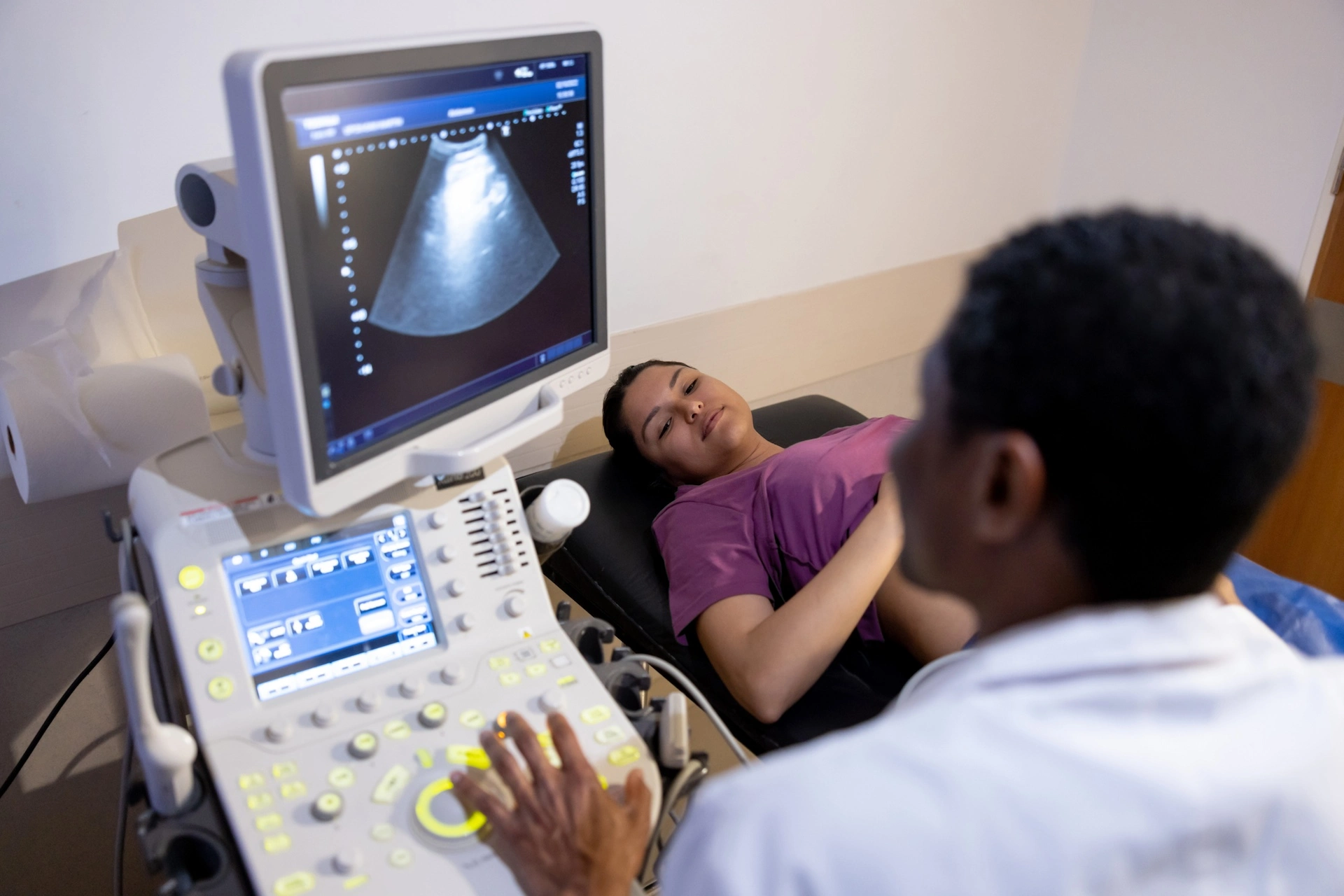Kaiser Permanente study highlights success of its ultrasound screening program
Referring only the patients whose obstetrical screening ultrasound shows a fetal cardiac abnormality for a fetal echocardiogram maintains high prenatal detection rates and reduces unnecessary echocardiograms, a new Kaiser Permanente study found.

“Many health systems refer pregnant patients for a fetal echocardiogram based on a wide range of maternal and fetal risk factors, even though there is no evidence that doing so improves detection rates or outcomes,” said lead author Sanjay Vepa, MD, a pediatric cardiologist with The Permanente Medical Group. “This study provides evidence-based support that the model we implemented at Kaiser Permanente Northern California delivers comparable results with fewer fetal echocardiograms.”
The retrospective study was published March 15 in Prenatal Diagnosis. It is one of the largest to date to assess this specific referral pathway for prenatal detection of significant congenital heart disease.
 “This study shines a light on one of the referral pathways our health care organization has developed that others can benefit from,” said study co-author Julie Schmittdiel, PhD, associate director of Health Care Delivery and Policy and a research scientist at the Kaiser Permanente Northern California (KPNC) Division of Research. “It’s another exciting instance when KPNC is leading the way in improving how care is provided.”
“This study shines a light on one of the referral pathways our health care organization has developed that others can benefit from,” said study co-author Julie Schmittdiel, PhD, associate director of Health Care Delivery and Policy and a research scientist at the Kaiser Permanente Northern California (KPNC) Division of Research. “It’s another exciting instance when KPNC is leading the way in improving how care is provided.”
Babies with significant congenital heart disease that is not detected before birth may not receive interventions as quickly as babies who have the problem detected earlier. If these conditions are not detected prenatally, there is an increased risk of death. Within KPNC, all patients between 18 and 22 weeks pregnant have an initial obstetrical ultrasound in either the radiology or maternal fetal medicine departments. A detailed obstetrical ultrasound is performed in the maternal fetal medicine department when abnormalities are noted on the initial screening or if the parent or baby has specific risk factors.
This study shines a light on one of the referral pathways our health care organization has developed that others can benefit from. It’s another exciting instance when KPNC is leading the way in improving how care is provided.
— Julie Schmittdiel, PhD
When cardiac abnormalities are detected on obstetrical ultrasound, the patient is referred to fetal cardiology for an echocardiogram. A pediatric cardiologist or a sonographer certified in fetal echocardiography performs the echocardiogram at a KPNC pediatric or fetal cardiology specialty clinic. The test uses soundwaves to create a picture of the heart that can allow doctors to determine if the baby’s heart is developing properly.
“Outside of KPNC, referrals for fetal echocardiograms are at least 10-fold higher,” said Vepa. “That means there are many, many more patients seen at other hospitals who may experience increased anxiety about their baby. Yet our study shows that with a good screening program — like ours — you can maintain a high detection rate for significant congenital heart disease with less additional testing.”
The study also compared detection rates for its 2 screening departments. It found a prenatal detection rate of 75% in the maternal fetal medicine department and of 52% in the radiology department. “This illustrates the impact of high-quality obstetrical screening and supports our progressive move within KPNC to have all fetal ultrasound screening reviewed by our maternal-fetal medicine team,” said Vepa.

The research showcases the ways KPNC initiates, studies, and improves care. “This study emphasizes Kaiser Permanente’s strength as a learning health system that carefully evaluates programs and initiatives and uses that information to inform care,” said Douglas Corley, MD, PhD, chief research officer for The Permanente Medical Group.
The Centers for Medicare & Medicaid Services are advocating for a nationwide movement to value-based care by 2030. Value-based care focuses on care quality, provider performance, and patient experience. KPNC’s ultrasound screening program is an example of a value-based care program that can potentially serve as a model for other health care providers.
“Our model for prenatal detection of congenital heart disease is emblematic of Kaiser Permanente’s strength as a value-based care model health system,” said Vepa. “We are a leader in that arena and this approach was designed to provide patient-centered, integrated care.”
The study was funded by The Permanente Medical Group Delivery Science and Applied Research Program.
Co-authors include Mubarika Alavi, MS, Weilu Wu, MS, Lisa J. Herrinton, PhD, and Kavin Desai, MD.
# # #
About the Kaiser Permanente Division of Research
The Kaiser Permanente Division of Research conducts, publishes and disseminates epidemiologic and health services research to improve the health and medical care of Kaiser Permanente members and society at large. It seeks to understand the determinants of illness and well-being, and to improve the quality and cost-effectiveness of health care. Currently, DOR’s 600-plus staff is working on more than 450 epidemiological and health services research projects. For more information, visit divisionofresearch.kaiserpermanente.org or follow us @KPDOR.





This Post Has 0 Comments